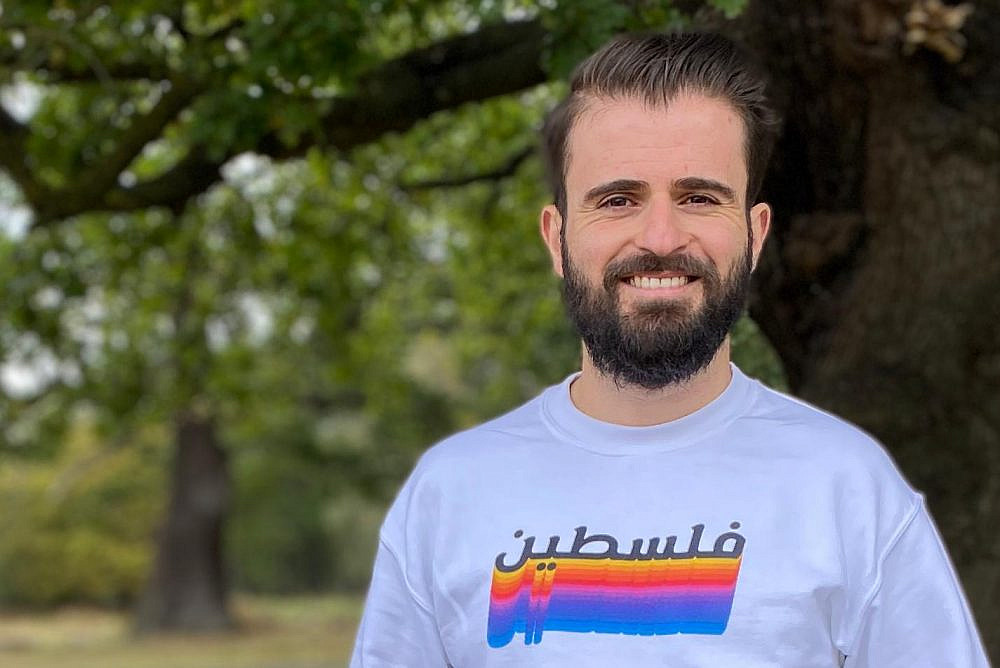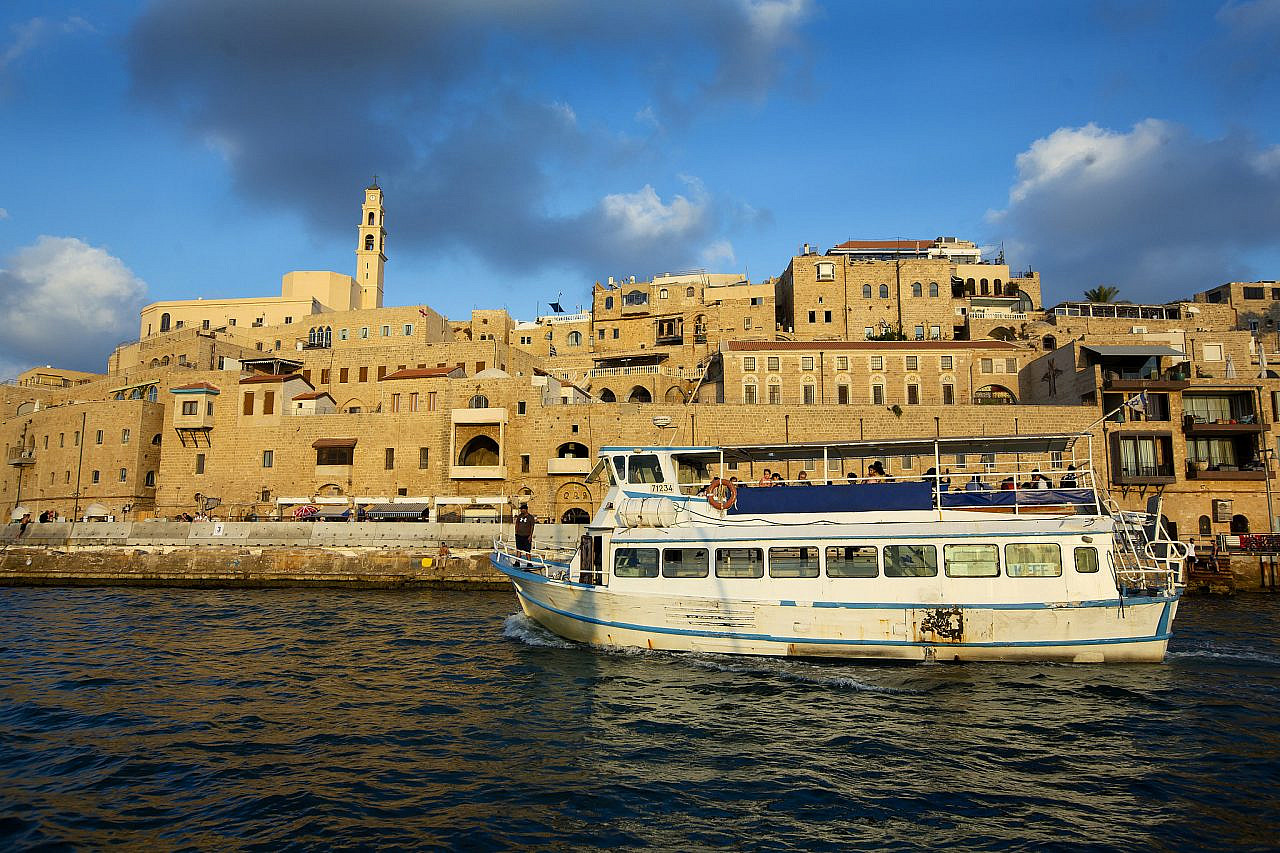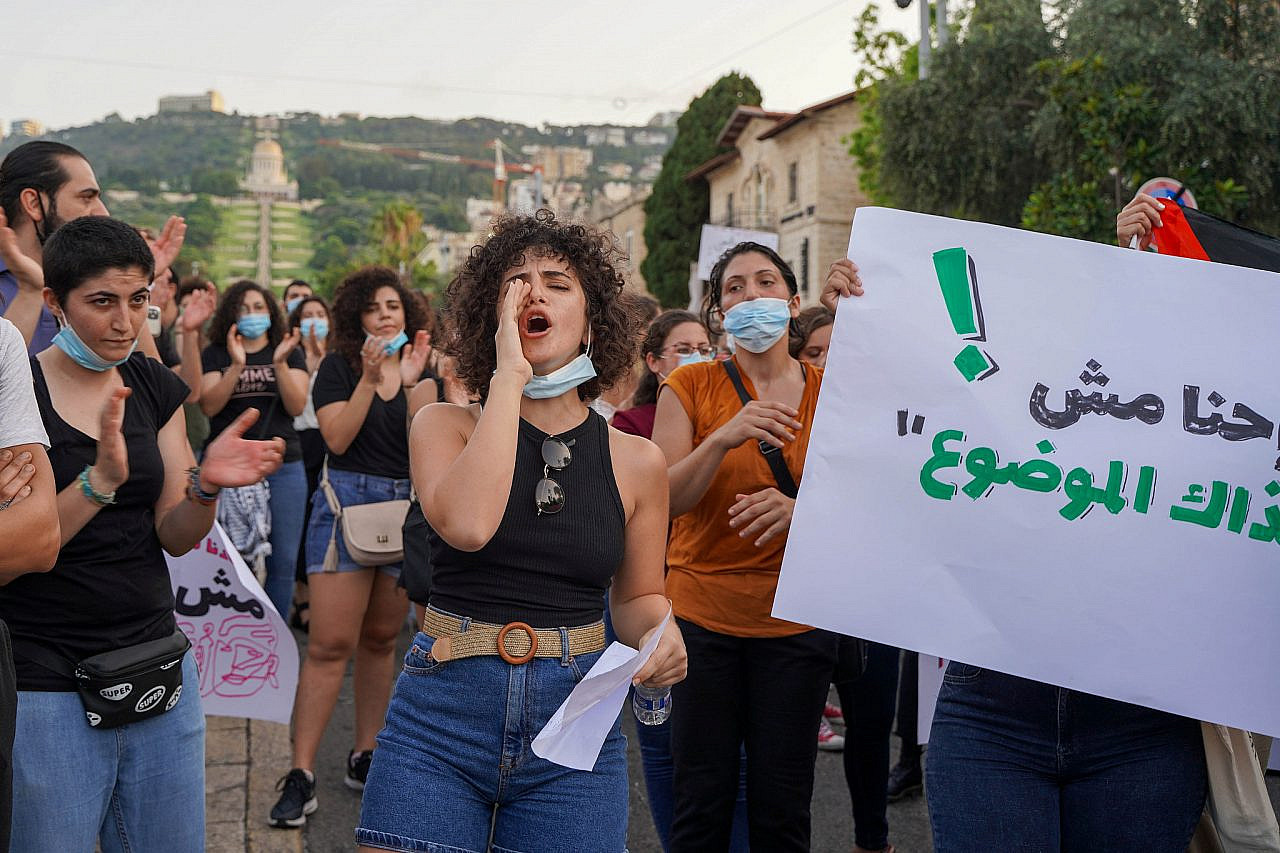Stories of queer Arabs often appear in Western media outlets for all the wrong, sensationalist reasons, painting them as victims of an irredeemably patriarchal and homophobic Islamic culture. In recent years, however, a swell of new literature, art, and activism has helped to unravel and reframe this perception, bringing greater complexity to a diverse social group that has tended to be spoken about without their voices.
With his newly published, English-language collection “This Arab is Queer: An Anthology by LGBTQ+ Arab Writers” (Saqi, 2022), editor Elias Jahshan seeks to reclaim the narrative on the subject by placing it in the hands of 18 queer Arab authors themselves. “From a military base in the Gulf to loving whispers caught between the bedsheets; and from touring overseas as a drag queen to a concert in Cairo where the rainbow flag was raised to a crowd of thousands, this collection celebrates the true colors of a vibrant Arab queer experience,” reads the book’s blurb.
While not shying away from a searing critique of patriarchy within the Arab world, the new anthology equally challenges the idea that Arabs are incapable of supporting LGBTQ+ people within their societies, and offers much evidence to subvert such stereotypes. By uplifting queer Arab voices, “This Arab is Queer” does not seek to merely transplant Western queer culture into an Arab context; rather, it celebrates the queerness of the people and culture of the Arab world that has existed for centuries, yet was obfuscated by guilt and shame during the period of colonialism.
Jahshan was born and raised in Sydney, a child of a Palestinian father and Lebanese mother who met and married in Australia. There he began his career as a journalist and writer, including as an editor of the LGBTQ+ outlet Star Observer, and producing a short memoir “Coming out Palestinian.” He has been living in London for just over six years, where he now works as the social media and audience editor of the online outlet The New Arab.
In this interview for +972, Jahshan discusses editing the new anthology and navigating wider challenges as someone who has experienced the “double displacement” of being queer and a member of the Palestinian diaspora. We begin by talking about his late father, who was from the Ajami neighborhood of Jaffa, and was about 10 years old when Zionist forces conquered and ethnically cleansed the city and most of Palestine during the Nakba of 1948 — an experience which Jahshan notes was “traumatizing” for his father.
“I visited [Palestine] in 2011, back when I was a baby journalist, and it was a very eye-opening experience,” Jahshan recalls. “I remember getting instructions from my dad’s generation of where to go based on their memories of Jaffa before 1948; they never had a chance to go back, but it’s nothing like it was before. I do know that my grandfather and his brothers and everyone in that generation were in the orange grove business, which is what Jaffa was famous for back when it was the center of trade for Palestine. And obviously, that all got lost after 1948.”
Despite the loss of that city of old, Jahshan still holds out hope for Jaffa reviving its historic place as hub of Palestinian life and culture — including for its LGBTQ+ community. “I don’t know what the future holds, but there is potential for Jaffa, or Haifa, to be the queer center of Palestine,” he says.
The following conversation has been edited for length and clarity.
In her essay for the anthology titled “Unheld Conversations,” Palestinian-Scottish writer Anbara Salam reflects on the absence of discussions about queerness in the Arab world, and the experience of queer Arabs whose families “are unable to offer their acceptance … The most they can do is clear a blank space on a map and stand at the edges, looking the other way.”
Her essay reminded me of the struggle for space that queer Palestinians push up against in the occupied West Bank, as exemplified by the cancellation of queer Palestinian singer Bashar Murad’s planned concert in Ramallah last summer, and the tension it exposed between the Palestinian national struggle and the fight to create a more just society within Palestine. How did you process that cancellation?
I can’t speak on behalf of Bashar, though I am very well aware of what happened. All I can say is that I am glad he canceled the show and chose to prioritize his personal safety. As Palestinian and Arab queers, it is necessary for us to focus on our safety, and the cancellation is not something for the wider Palestinian community to be proud of.
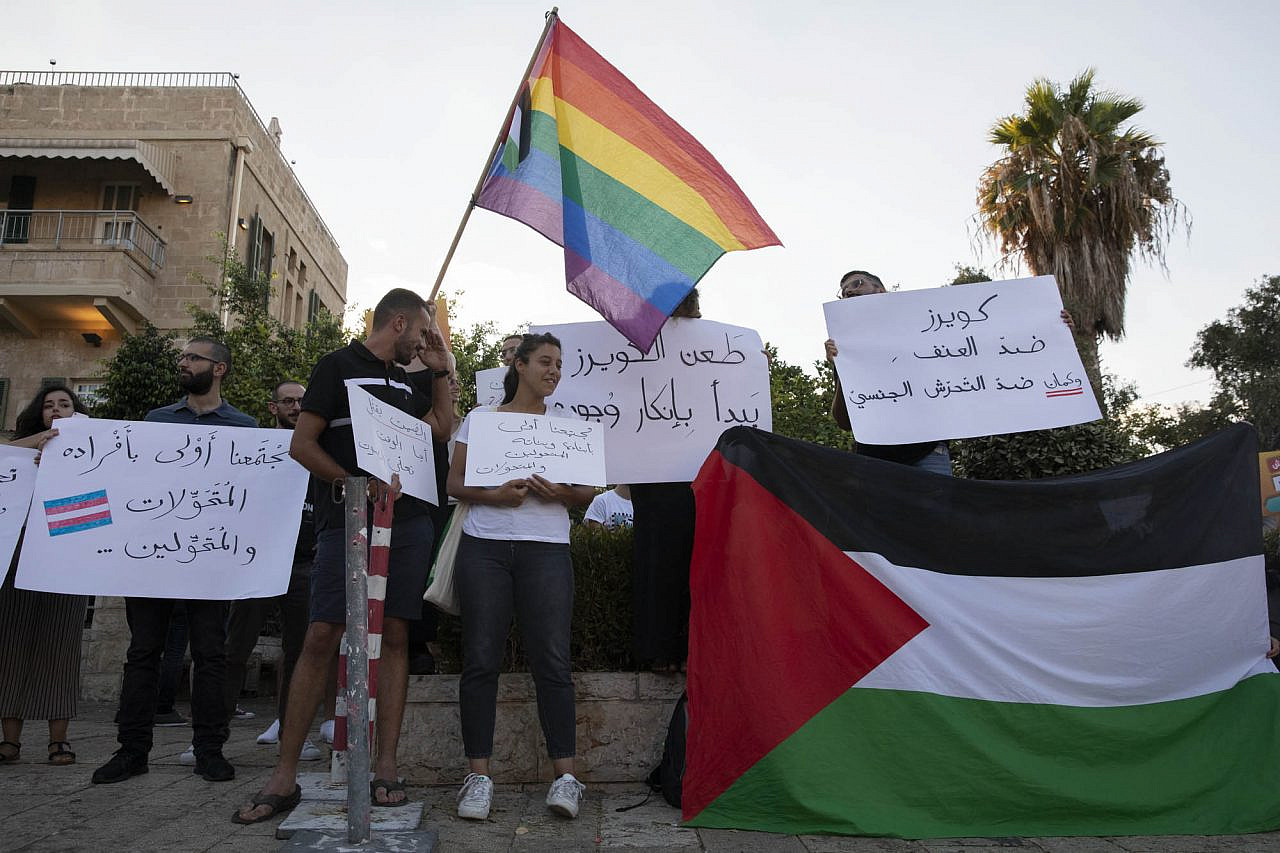
The reason Bashar did not really talk about it after is that he did not want to draw too much attention to it — it just attracted homophobia, which you see in Lebanon all the time, and in the Gulf and Egypt as well. The moment that there is one ounce of visibility for the queer community, the authorities clamp down and use them as a political football to distract from other issues.
I can’t stand the mentality of Arabs saying that queerness is not part of Palestinian culture, that it is a Western import. We queer people have grown up everywhere and have existed forever. It is a big mess, and it should not have to be that way. Palestinians in general tend to be very much focused on “people power” and not so much on individuals. So from my experience, it is not really about making society conservative and religious, forcing everyone to follow the same rules; there is room for queer diversity.
LGBTQ inclusion is often appropriated by Israel advocates to depict a contrast between “Tel Aviv Pride” and a Palestinian society that is frozen and unable to progress…
Israel definitely tries to drive a wedge between queer Palestinians and the wider Palestinian community. And they have a well-oiled propaganda machine doing that every year, especially around Tel Aviv Pride. It is not even something that is insidious, but is rather quite obvious.
One thing that is really important to acknowledge is that queer liberation for Palestinians is tied up with liberation from Zionism. A lot of people try to separate and compartmentalize them, and to some extent you can — like when we talk about the homophobia and transphobia within our community, which is something we have to deal with ourselves. But in terms of real liberation, we cannot achieve that until we have a free Palestine.
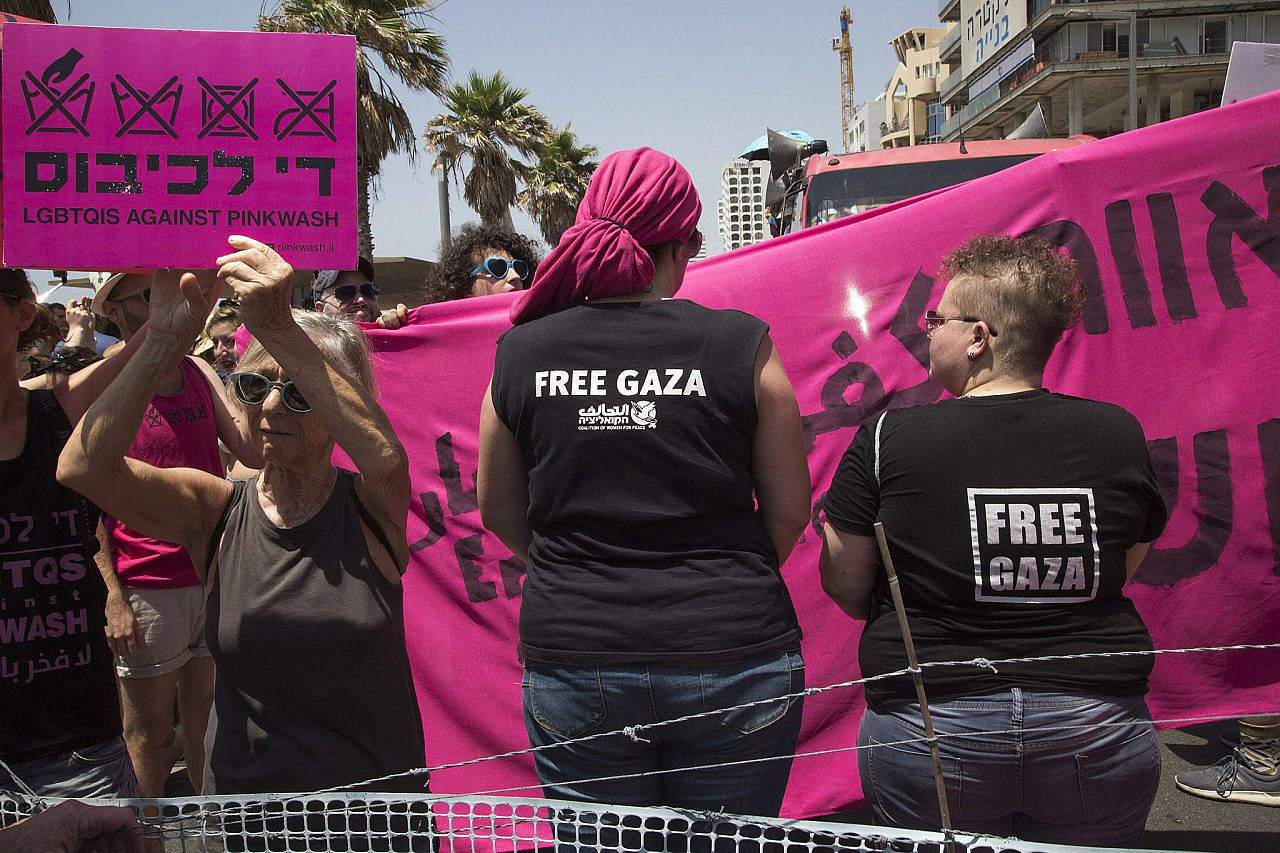
Many of the essays in the anthology are quite hopeful. I was particularly moved by Mona Eltahawy’s description of queer pleasure as an act of resistance against the oppression of sexuality that she views as (quoting American poet June Jordan) “deeper and more pervasive than any other oppression.” How do you understand queer Arab pleasure as an act of resistance?
I think it’s a great act of resistance, because it shows that we’re taking control of our bodies. We’re taking pride in our sense of self and agency — and there should never be any shame whatsoever for having pleasure and having sex, because that is human nature.
The reason there is so much shame and stigma around sex is because of the entrenched patriarchy in our culture. When we celebrate sex positivity in our community, not only is that radical, it is definitely an act of resistance, because it challenges patriarchy and challenges the stigma around sex. I think Mona’s essay was the perfect way to start the anthology because it is just a punch in the gut for many people.
How has the reception of “This Arab is Queer” been?
We definitely have a lot of allies in our community. Ever since the book came out, it has given me a lot of anecdotes that turn that Zionist myth about Palestinians being homophobic on its head. More than half of the support I’ve got for the book has come from straight Palestinians. We Arabs are not a monolith — we are diverse and have different views. And I think Zionism and hasbara really try to enforce this idea that Palestinians are incapable of being progressive or open-minded and inclusive.
Have there been any negative responses?
I haven’t personally seen any backlash or negative responses. The book has not been out for very long, and maybe there will be. I do know that if this book were published in Arabic as opposed to English, it would have opened itself up to a lot more backlash because that is the language where the bans happen.
I’ve had some people send me direct messages on Instagram or Twitter asking how they can get a copy of the book because Amazon does not list it in their countries — typically Egypt or Dubai — and so I help them order directly from my publisher. Amazon sort of buckles under government pressure, [over things] such as listing items with rainbows on the website. So obviously, my book cover would make it tricky.
At the same time, I can’t think of any Arabic-language publisher, based in the Middle East or North Africa, that would publish a book like this. I guess publishing in English in some way was to carve out space for ourselves. Because the Arabic-language publishers — and I would love to be proven wrong — would not give us that space.
Finally, what are your dreams for a free Palestine and Jaffa once again becoming a center of Arab and Palestinian culture — and a home for queer Arab futures?
I definitely think Jaffa has the potential to become a center of Palestinian culture in a free Palestine, as it was back in the 1930s and ’40s or even long before that. I think, by its nature of being on the beach, and on the water, it attracts an openness and a more liberal mentality compared to Jerusalem, which is the religious center. My dad remembered having Jewish and Christian neighbors, so this is my hope for a free Palestine where we can all coexist together. I don’t know what the future holds, but there is potential for Jaffa, or Haifa, to be the queer center of Palestine.

